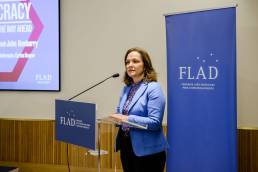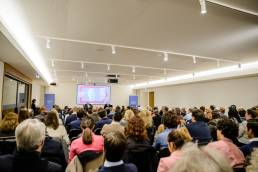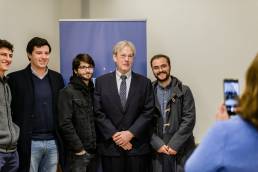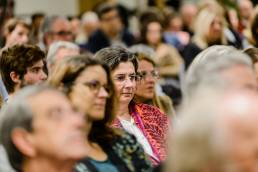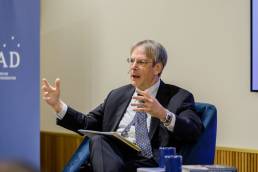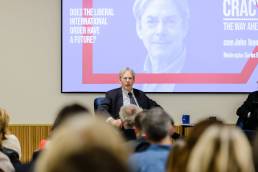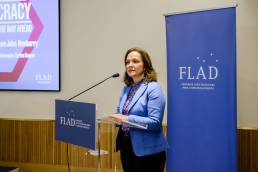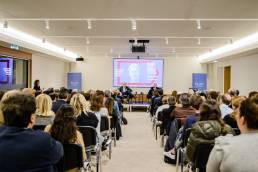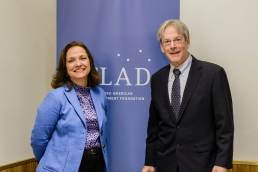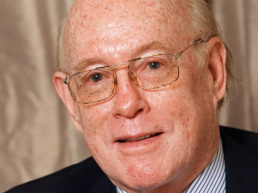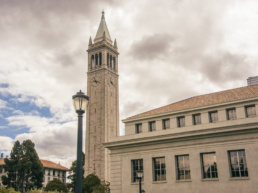The first session of the “Democracy: The Way Ahead” lecture series had John Ikenberry as guest. The Princeton University professor talked to Carlos Gaspar, researcher at IPRI – NOVA, and the public about the future of liberal democracy.
On January 19, in front of a full and attentive audience, John Ikenberry, brought us his vision on the current state of “order and disorder in the world”. The professor at Princeton University recalled some key moments in the history of democracies, which he considers to be a 250-year tradition of “golden ages and crises”. Drawing on Woodrow Wilson’s expression at the time of the United States’ entry into World War I – “to make the world safe for democracy” (1917) – Ikenberry stressed the importance of cooperation among liberal democracies for a path to defend common values, capabilities and interests.
The researcher also mentioned that, despite the crises, there are a number of remarkable successes of liberal internationalism that allowed the rise of a system founded on rules and institutions, such as NATO, in the security field, and the Breton Woods system or the WTO, in the economic field. Ikenberry recalled some of these successes, such as the opening of the world economy in the post-World War II era; the integration of Germany and Japan, defeated from the war, into the system; French and German cooperation in launching the European project; the creation of institutions by the world’s leading economies – the G7 – to manage economic interdependence; and the opening of the system to non-Western countries in transition to democracy.
Watch or review the session here:
The current situation in Ukraine was also an unavoidable topic in the session. John Ikenberry considered that this war is determinant for what the international order will be in the future, justifying that the conflict represents a competition of the global order, in which there are different agents – liberals and illiberals – with alternative models, wanting to dominate. The academic also emphasized the relevance of human emotions that, despite often falling into oblivion, are the source of inspiration that reveals the courage of those who put their lives at risk in the name of an ideal.
Influenced by Ira Katznelson’s book Desolation And Enlightenment (2003), Ikenberry ended the conversation with a hint of hope. Even though these are difficult times, with many challenges to liberal democracy, resilience must prevail and an effort must be made to preserve the rule of law and multilateralism. To maintain this system, and a “safe world for democracy,” we must seek to integrate those who remain outside, and perhaps then “we will be able to see a glimmer of hope for the 21st century”.
Related Posts
March 25, 2025
Note of Condolence – Charles Buchanan (1934-2025)
March 24, 2025
Applications Open: FLAD/Saab Visiting Professor at UMass Lowell 2026
Portuguese professors can apply to…
March 17, 2025
FCT and FLAD sign new protocols with the University of California
The objective is to promote academic…
